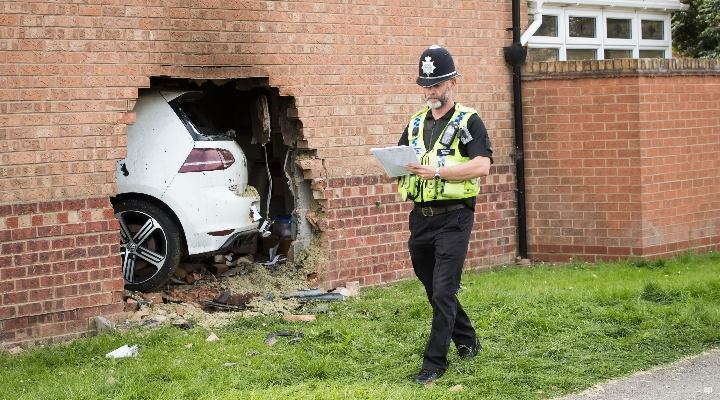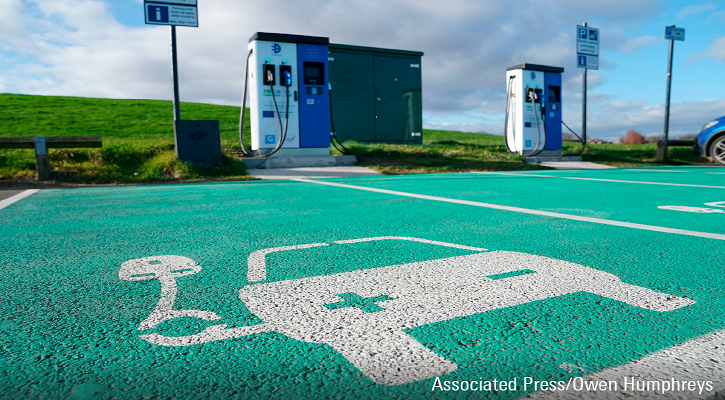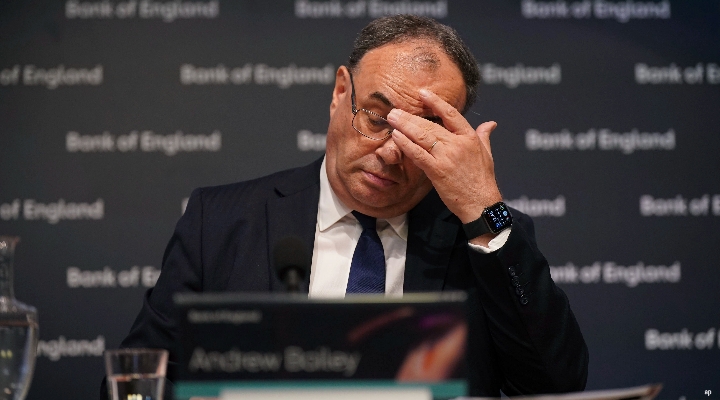
Britain’s dependence on the humble motor vehicle seems hard to question. Saying we drive too much is the equivalent of saying we drink too much – you may have a point, but it may get you ejected from polite society.
Should driving be rationed? The question may seem absurd in a summer of rail and tube strikes. If you don’t live in a city or town, your car may be the only means of getting to shops, accessing vital medical services or going to the gym, cinema or restaurants.
With petrol prices hitting record highs this year in the UK, an orthodox economist may say the market is setting the price of driving. If the cost of driving is too much, then you should do less of it (if you can). This tenet obviously excludes those who have to drive for work – lorry drivers, logistics companies, small businesses – who are similarly feeling the pinch.
Whether you do it for work or leisure, driving is an expensive business. Petrol and diesel are a component of the Consumer Price Index (CPI), which is forecast to hit nearly 20% next year. (For context, the weighting of fuel costs has actually fallen in the last few years, as this ONS chart shows.)
The cost of filling up excludes car insurance, which has also been increasing. Because people are driving more after lockdowns, they're having more accidents, and the cost of repairing the cars is going up – as insurer Admiral has noted.
Then you add MOT and vehicle excise duty (linked to a car’s carbon emissions). Many people are on some sort of car finance deal, and those are tied to the Bank of England (BoE) interest rate, which has been rising steeply too.
Is the government making money out of this? According to the RAC, the average litre of petrol consists of VAT (17%), fuel duty (29%), biofuel element (7%) and retailer profit (2%). Many petrol retailers have signs up effectively saying – "it’s not our fault, don’t get angry with us!"
I've Seen the Future and the Traffic is Murder
Naturally, sustainability optimists have seen the future and they see it in these terms: drivers seamlessly making the transition to electric vehicles ahead of the 2030 switchover, after which petrol and diesel cars will no longer be sold (sometimes misunderstood as a "BAN" on fossil fuel cars from that date). New vehicle sales figures from the Society of Motor Manufacturers are encouraging, with EVs and hybrids making up an ever-increasing proportion of cars leaving the dealerships.
To circle back to the original point about rising costs, though, EVs are expensive too.
Many people would love to upgrade to an EV for environmental reasons – and to avoid pump rage every time they fill up – and there are an increasing range of options from budget to high-end manufacturers (from £20,000 for the Smart EQ Forfour up to the Lamborghini Sian, a snip at around £3 million).
You may have noticed the snag here. With economic clouds darkening by the day, many households simply cannot afford to get on the lowest rung of the EV ladder. Can we tempt you with a range of competitive finance deals, says the dealership? With the UK either in recession or heading into one, probably not. That’s if the dealership has an EV in stock at all.
The 2030 switchover is less of a hard stop and more of a drift, then. It certainly won't be akin to Sweden's switch from driving on the left to the right in just one day in 1967.
People will cling on to their petrol and diesel cars from economic necessity, nostalgia and fear of change. Some may not even think climate change is a threat. Despite diesel hitting £2 a litre this year, some drivers are less on board with the "climate transition" and prefer the sound and smell of the older models.
A visit to an average car park in Britain in 2022 will find a fair few drivers idling their engines for long periods, oblivious (or indifferent) to the environmental and air quality impact.
Are Cars as Bad as Cigarettes?
Faced with a recalcitrant audience, governments generally think: we’ll hit them in the pockets and force them to change. No doubt running a petrol/diesel car will become as painful as smoking, but people still buy ciggies at whatever cost.
Eventually old cars will stop running and end up on the scrap heap, which is where politicians want them. The last national scrappage scheme was launched in the dying days of the Gordon Brown government, itself now an age ago. Cities like Birmingham and London currently run similar projects and, while welcome, you still need to be able to afford an upgrade to replace your old wheels.
What do UK politicians expect from transport? Like most governments, we’re aiming for net zero by 2050, and the October 2021 policy document Net Zero Strategy: Build Back Greener puts transport at the heart of this transition.
But every Budget sees the chancellor talk up a new bypass or motorway upgrade, or keep fuel duty frozen to appease the tabloids. Drivers are right to be confused. For years we’ve been encouraged to "let the train take the strain", get out of the car and embrace public transport. HS2, a pre-pandemic idea to marginally increase the speed of London-Birmingham rail journeys, is on the same track. This has worked to an extent in cities like London, where a boost in spending on bus routes under mayor Ken Livingstone encouraged commuters to try something new.
The congestion charge, and now Ultra Low Emissions Zone (ULEZ), Low Traffic Neighbourhoods (LTNs) and cycling schemes reinforce the same message: cars are bad, try a greener alternative, feel better about yourself. But as the popularity of Uber when it launched in London attests to, people still like car journeys and won’t change their ways - even in a city with effective public transport. In a class-based society, destigmatising bus use is very important to make transport use and transport capacity happy bedfellows.
For a brief period during 2020, the A40, the main arterial route from the west into London, was quiet and free flowing. Dedicated cycle lanes popped up and cyclists got a glimpse of Utopia. Now, rush hour sees the familiar tailbacks and frustrated motorists.
Fast forward to the 2030s and we may feel nothing has changed: the traffic jams are still there, but the air quality for local residents is better as there are more electric vehicles on the road. EVs, setting self-driving cars apart, are still driven by accident-prone humans.
Petrol Heads Meet Net Zero
Is this the green future for transport the UK government wants? It’s difficult to tell. We have a significant car industry in the UK, from Nissan in Sunderland (which was "incentivised" to stay after Brexit) to Jaguar Land Rover in Halesowen.
But the most influential car "lobby", if such a thing still exists, is still the consumer, which may not have an alternative even if it wants one. Asked what irks residents most, potholes usually come high up on the list. Rail strikes could ease off in theory, but the wave of industrial action across the UK seems to have an unstoppable momentum while inflation erodes workers’ wages.
Petrol prices could also ease, but unless we find a massive reserve of oil in the UK, are never going to go back to the summer of 2007, when the price per litre broke through £1.
Ultimately, it comes down to money. While interest rates were at record lows, it was easy for governments to finance infrastructure projects (roads and rail), but the economic terrain is likely to be uphill for UK PLC, even if Labour takes over in 2024.
Green upgrades come from borrowing money and taxes, which may be less of a priority in the rest of the decade as households struggle to keep their heads above water. In the clamour for cash, other departments may shout louder than the DfT. After all, 2050 is a long way off and it will be easier for policymakers to kick the can down the inconsistently- tarmacked road.
The lesson from emerging markets is not a promising one for enthusiasts of green public transport: commuters in China have gone from bicycles to cars in a matter of decades.
Even in America, the birthplace of Ford, Tesla and the home of tech innovation, Americans talk with affection about "driving season" and swap horror stories about domestic flights. The cars may be greener but the social cost remains high, with over a million road deaths a year worldwide, especially in developing countries.
Back in the UK, policy makers have a battle on their hands to convince the country's 32 million car owners that change is afoot, and that it's overdue. In the middle of an economic crisis for households, however, aggressive messaging may have to take a back seat.











.jpg)
















